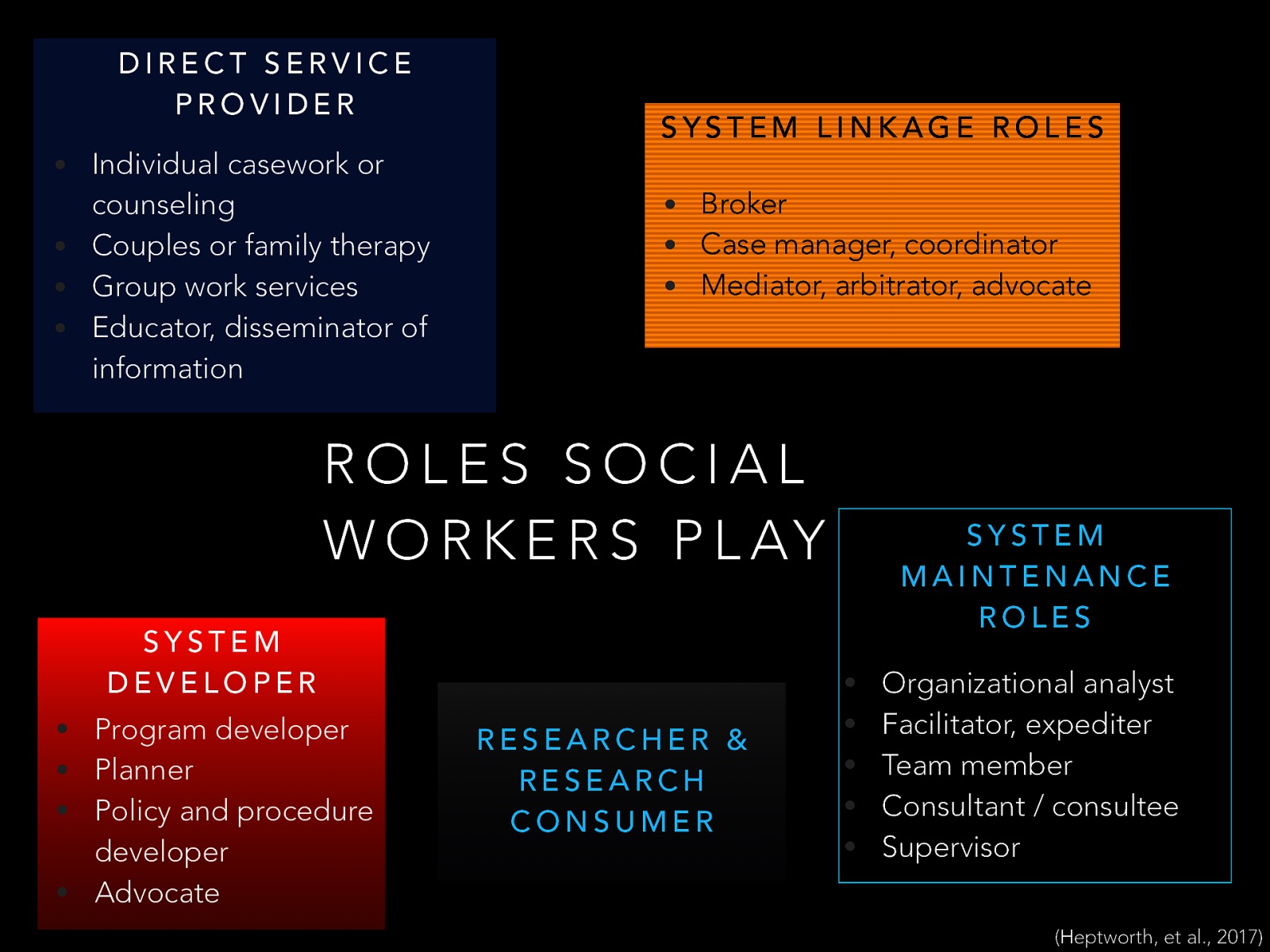Week 03 - An Overview of Direct Social Work Practice
A presentation at Heritage University in September 2019 by Jacob Campbell and is tagged with Heritage University, BASW Program, SOWK 486w
Description
An overview of Direct Social Work Practice. The following is the agenda:
- How we help
- Evidence-based practice
- Involuntary clients
- Ecological Systems Model
- Social work jobs and roles
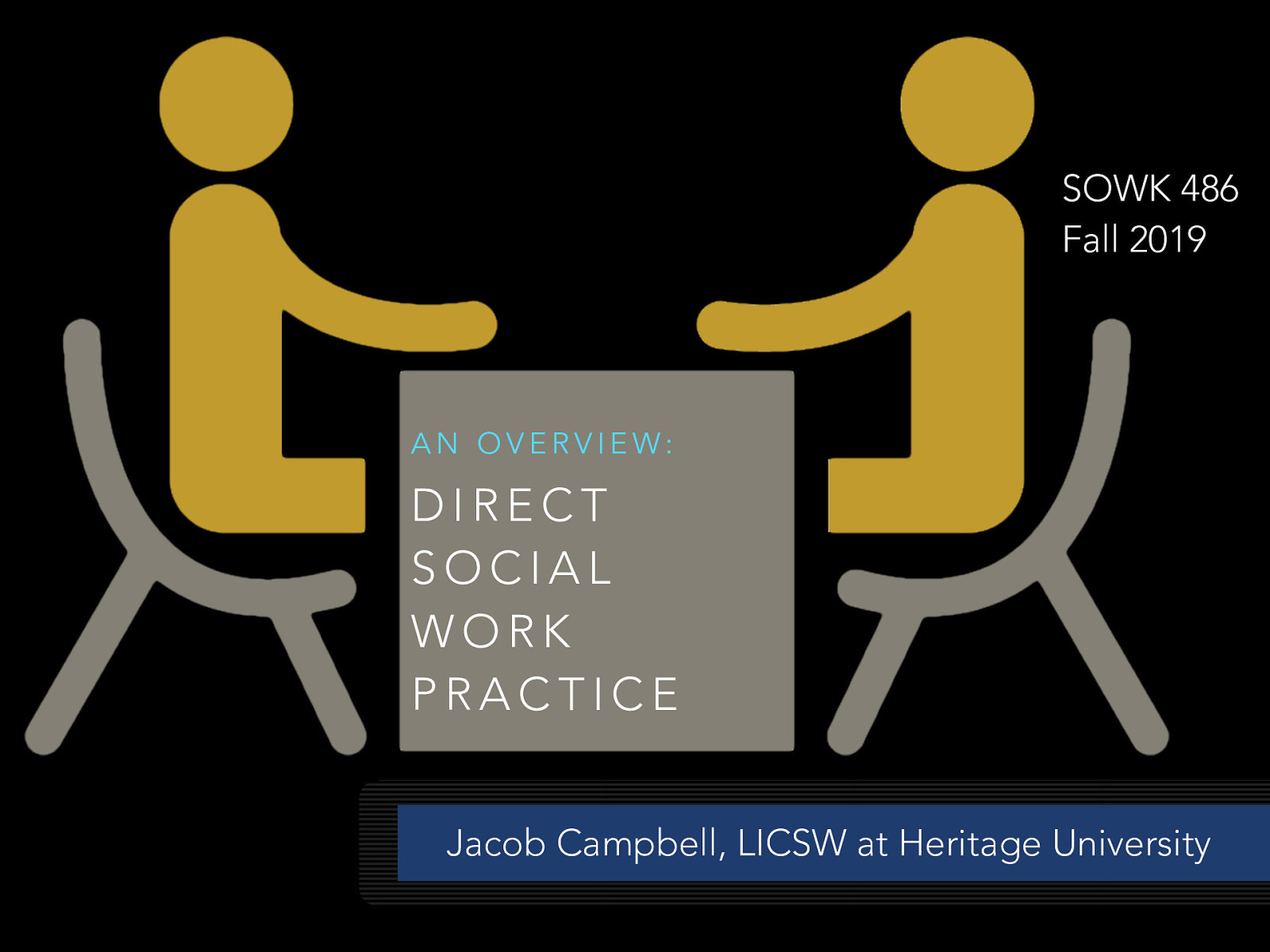
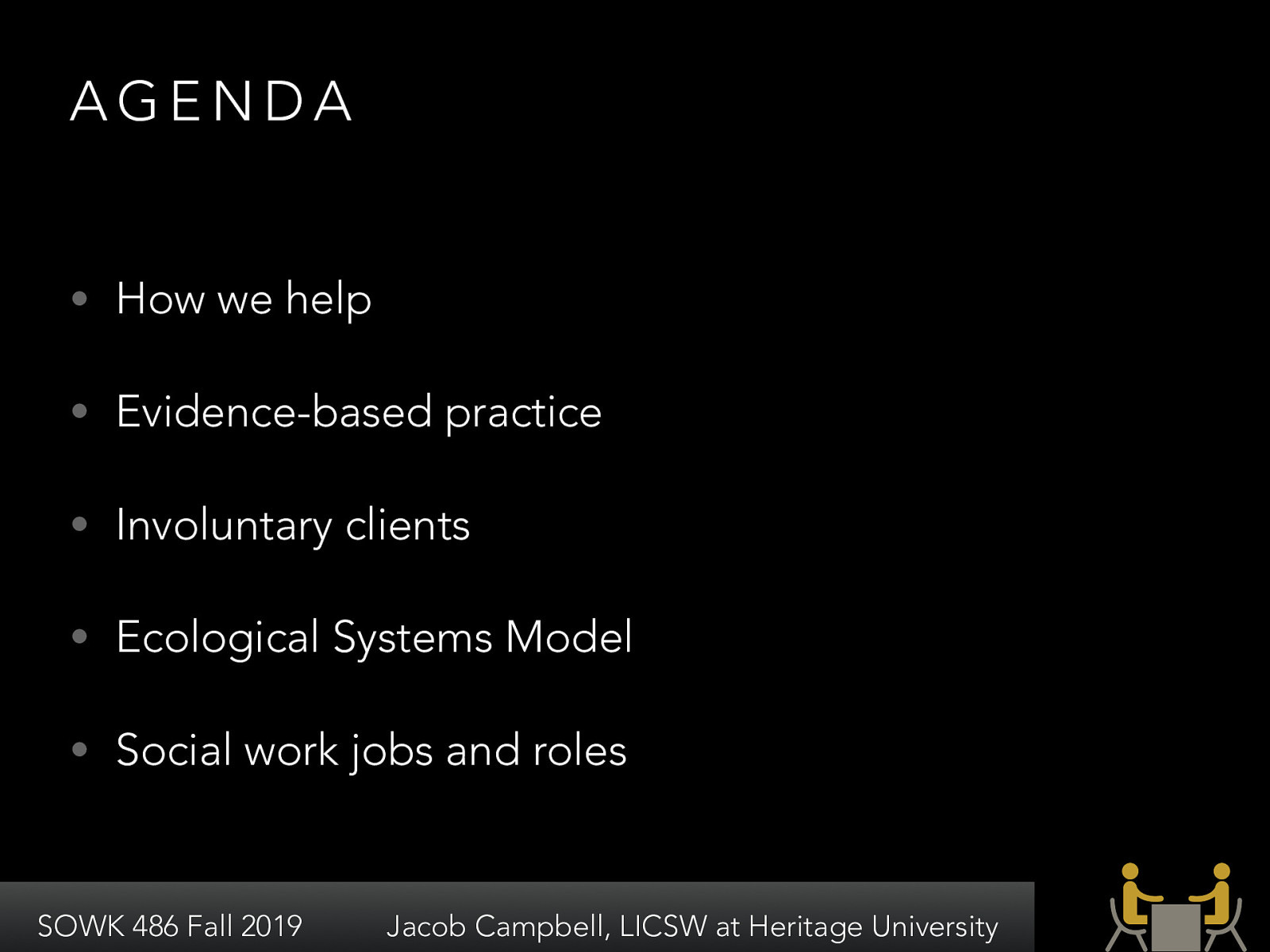
![“You can close your eyes to the things you don’t want to see, but you can’t close your heart to the things you don’t want to feel.” —Johnny Depp Each of us to our own degree has had experiences that were difficult, and often times we’ve had somebody who has supported or comforted us. [Small Group Activity] You will work in small groups of 3-5 people. Recall a time that you were experiencing an intense emotional difficulty and were comforted and supported… How did you “know” that person was being supportive What behaviors and words did that person use that were helpful to you List these on your poster for future reference](https://presentations.jacobrcampbell.com/wplYsz/deck-3514-large-2.jpeg)
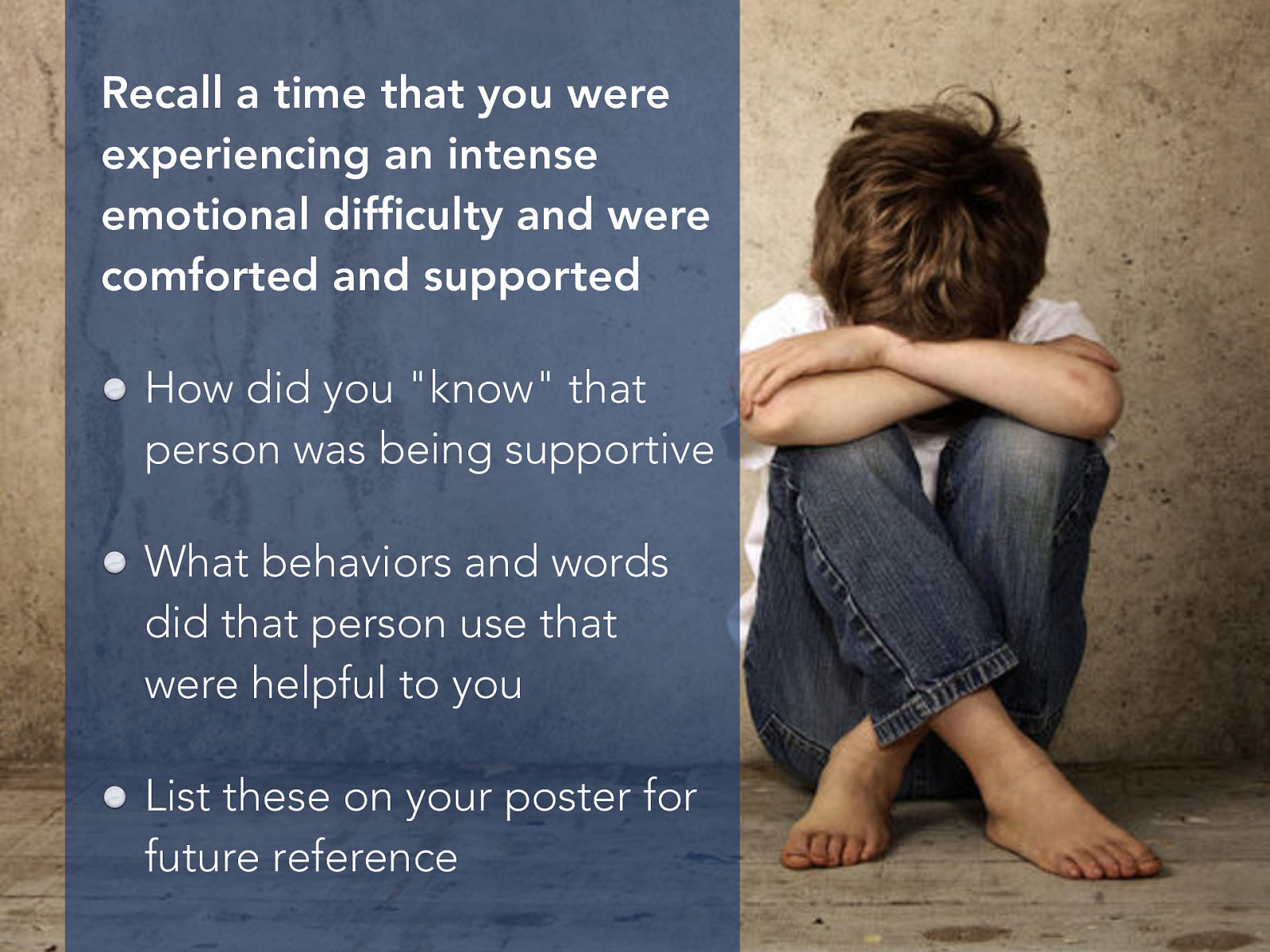
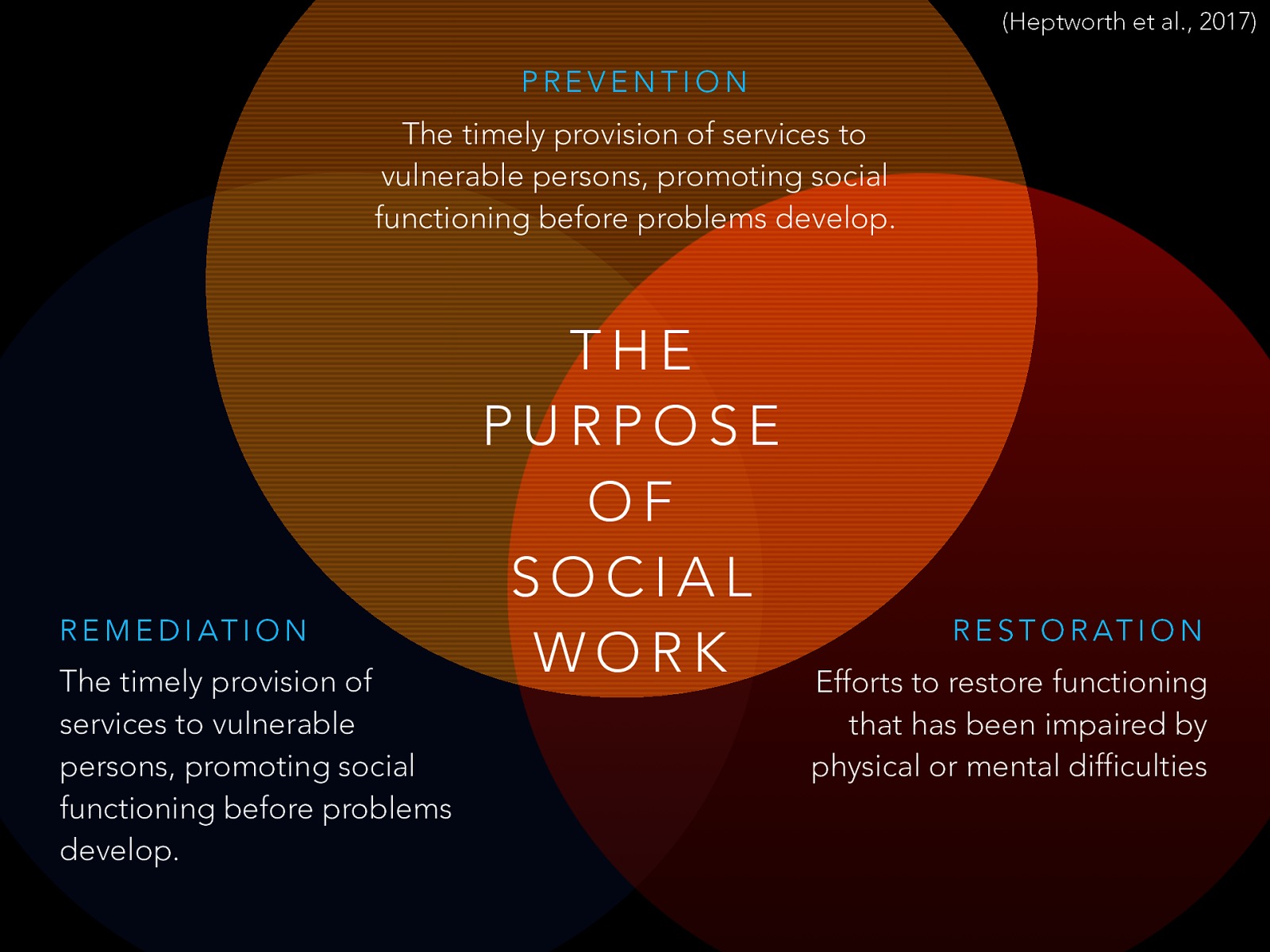
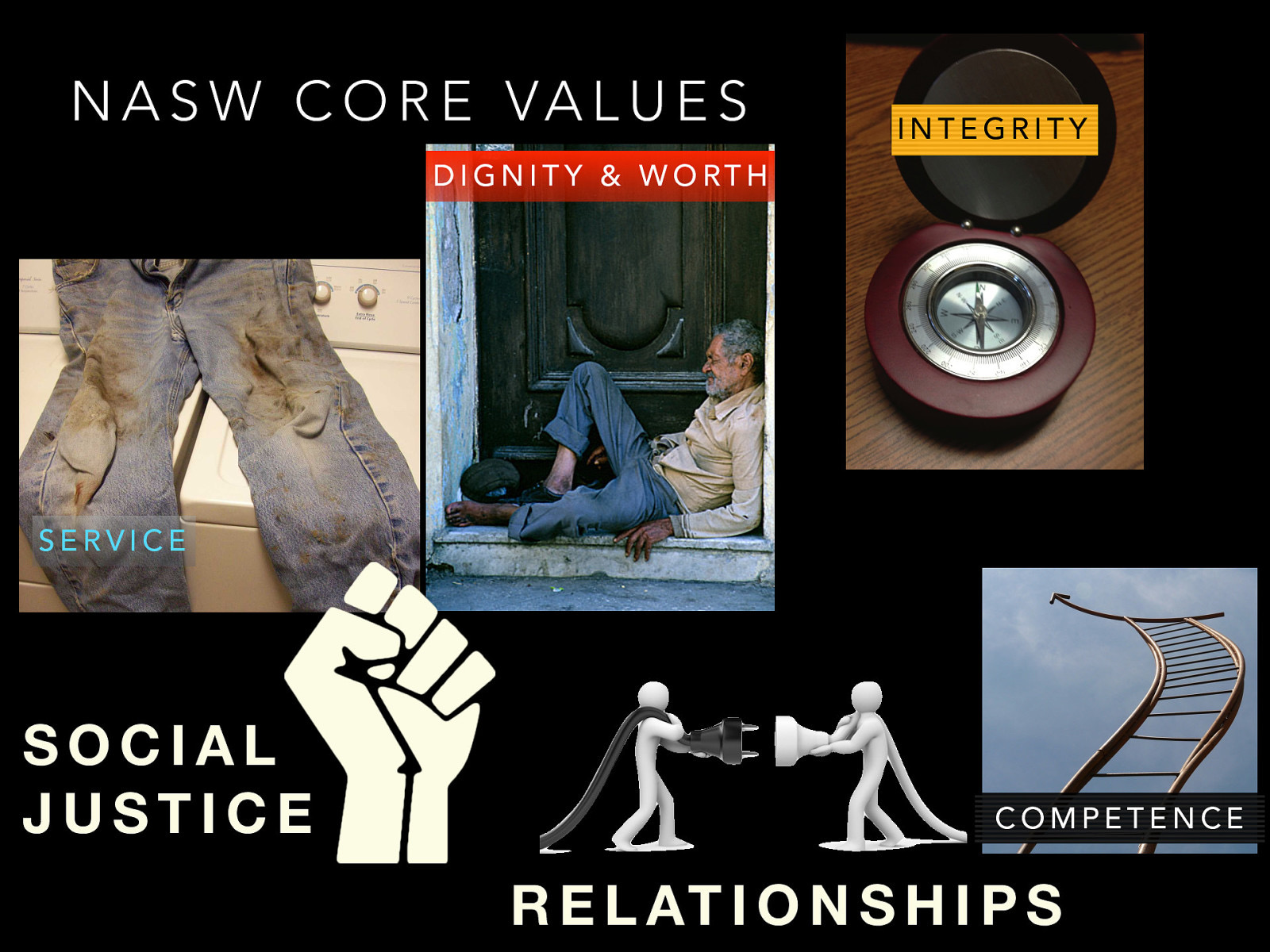
![Another area of competency for social workers and part of out ecclectic base of knowledge is that of Research-Informed Practice and Practice-Informed Research [Discussion] Why is social work research important. Social workers must be able to evaluate effectively the work they do with clients at all levels. The evaluation of macro system effectiveness, and the ability to understand, analyze, and critically evaluate social literature and research. Why Knowledge about social work research is important Choosing effective interventions Scientific orientation to identify, evaluate, and choose effective interventions Research-informed practice is evidence-based social work Framing social work interventions so they can be evaluated through research thus providing information about which specific techniques work best for specific problems. Practice-informed research refers to scientific investigation designed to attain results related to successful social work practice. More effective individual practice The second reason research is important is because with this scientific perspective, it can guide social workers to become more effective in their practice. Development of profession The third reason is that accumulated research helps to build an effective knowledge base for the social work profession. This helps define social work practice, increase the effectiveness of interventions, and enhance the professions accountability.](https://presentations.jacobrcampbell.com/wplYsz/deck-3514-large-6.jpeg)
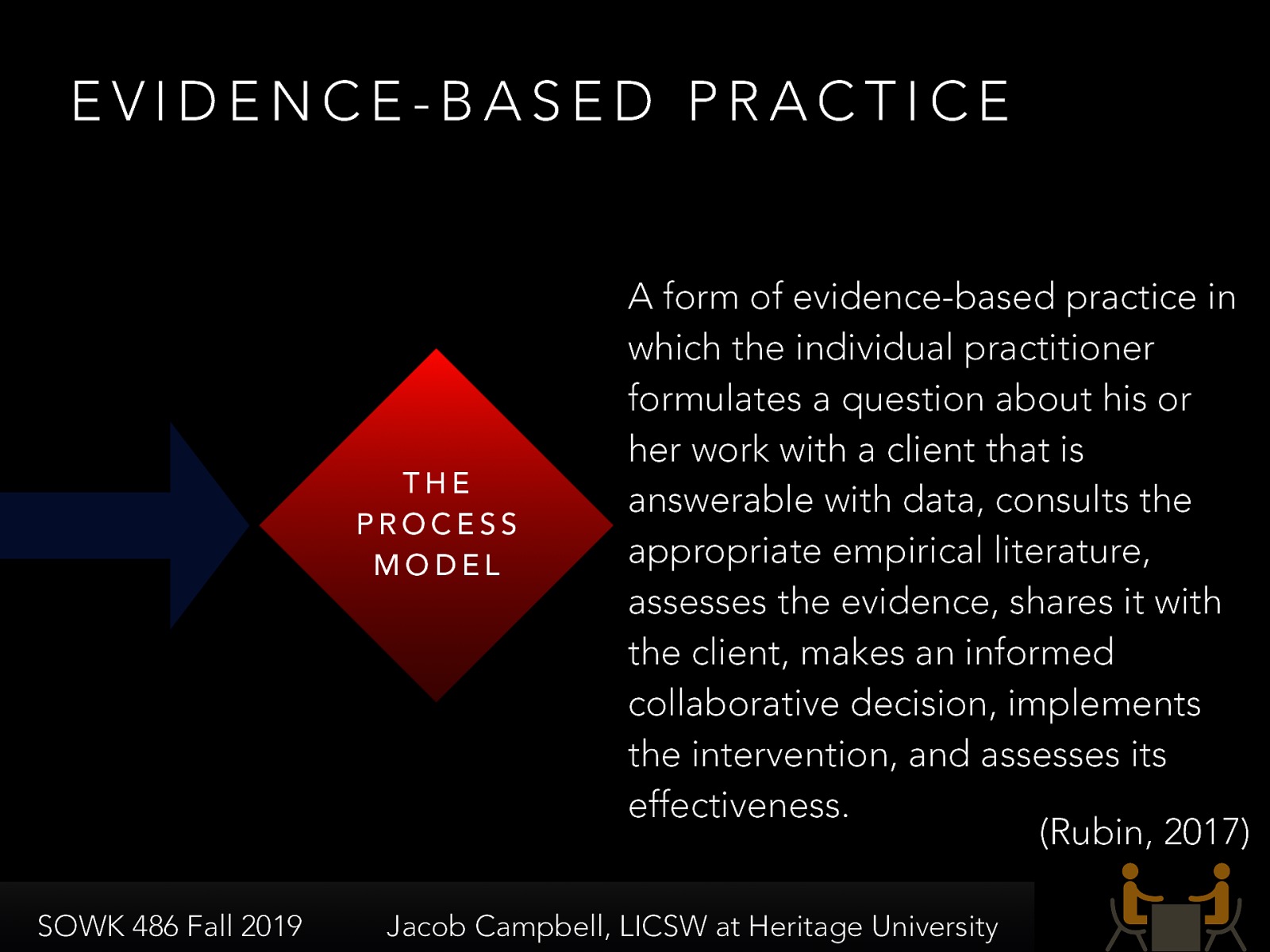
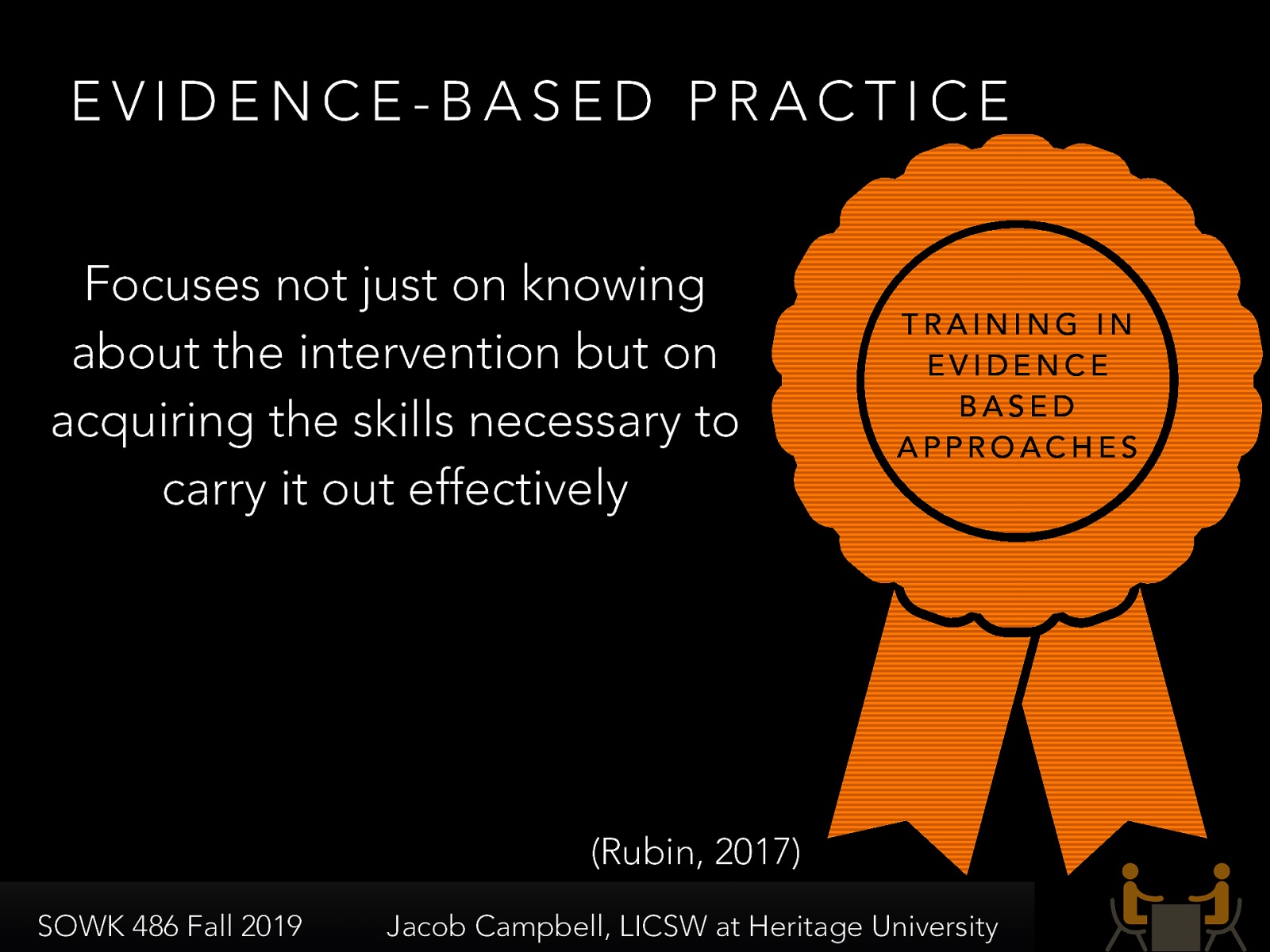
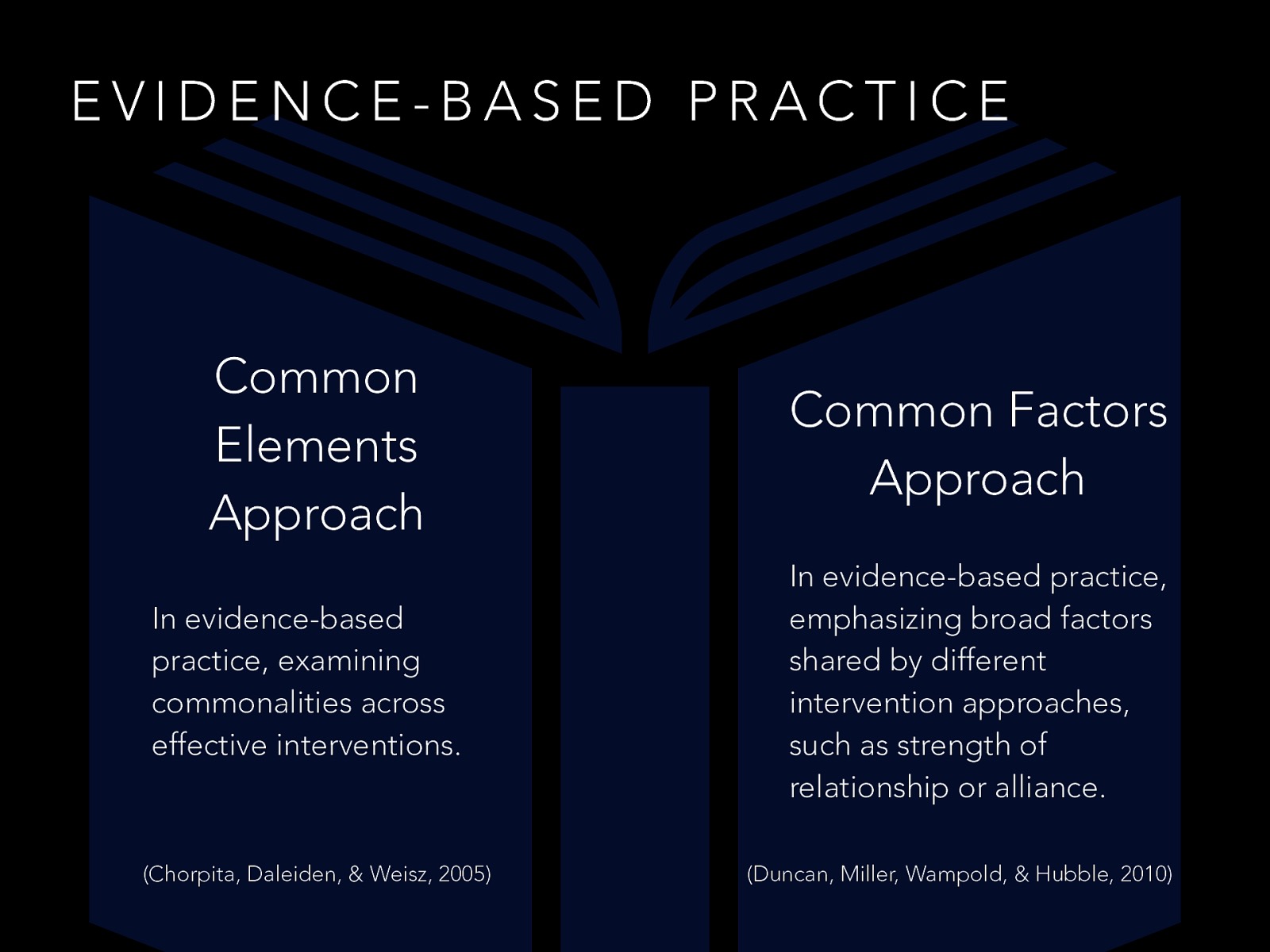
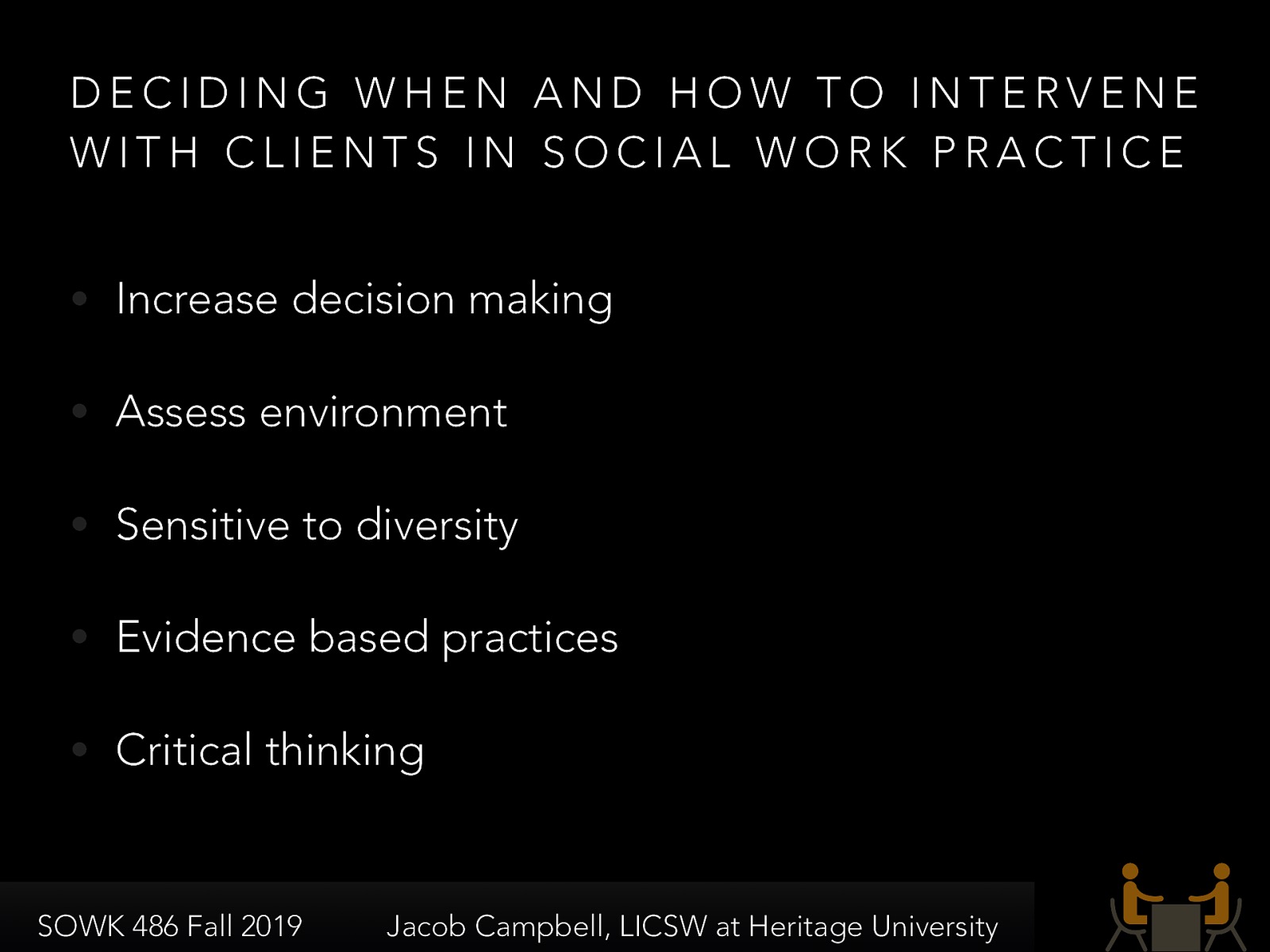
![(Watson-Glaser, 1925) from https://www.thinkwatson.com/the-red-model Another process for generalist practice is that of critical thinking… The greatest thing you can learn from college is critical thinking [Discussion] What does critical thinking mean? Focuses on the process of reasoning. The goal of critical thinking is to evaluate the accuracy of impressions, assess diverse aspects of a situation, and develop creative approaches to finding solutions and making plans. Think RED Recognize Assumptions Ask questions Assess the established facts and issues involved Its okay to question “facts” Evaluate Arguments Careful scrutiny of what is stated as true or what appears to be true and the resulting expression of an opinion or conclusion based on the scrutiny Draw Conclusions Creative formulation of an opinion or conclusion when presented with a question, problem, or issue Assert a concluding opinion](https://presentations.jacobrcampbell.com/wplYsz/deck-3514-large-11.jpeg)
![The textbook introduces the concept of a eco-map. The graphic below is from a mind map. Using eco-maps Examples of how they look Creating a quick mind/eco-map [Small Group Activity] Create a eco-map with a partner](https://presentations.jacobrcampbell.com/wplYsz/deck-3514-large-12.jpeg)
![In social work, we have all types of clients that we work with. [Whole Class Activity] Discuss the differences and possible clients for each client type. legally mandated voluntary non voluntary](https://presentations.jacobrcampbell.com/wplYsz/deck-3514-large-13.jpeg)
![Involuntary clients are clients that are forced into involvement with social workers and really do not want to be involved. They could be mandated or non-mandated. [Discussion] What might be some reasons for clients being mandated? 10 suggestions of working with involuntary clients. Acknowledge to yourself that the client is indeed voluntary. Try to put yourself in the clients shoes. Label and help the clients express their negative feelings. Clarify your role for the client. Know the limits of your authority, and in effect power over the client.](https://presentations.jacobrcampbell.com/wplYsz/deck-3514-large-14.jpeg)
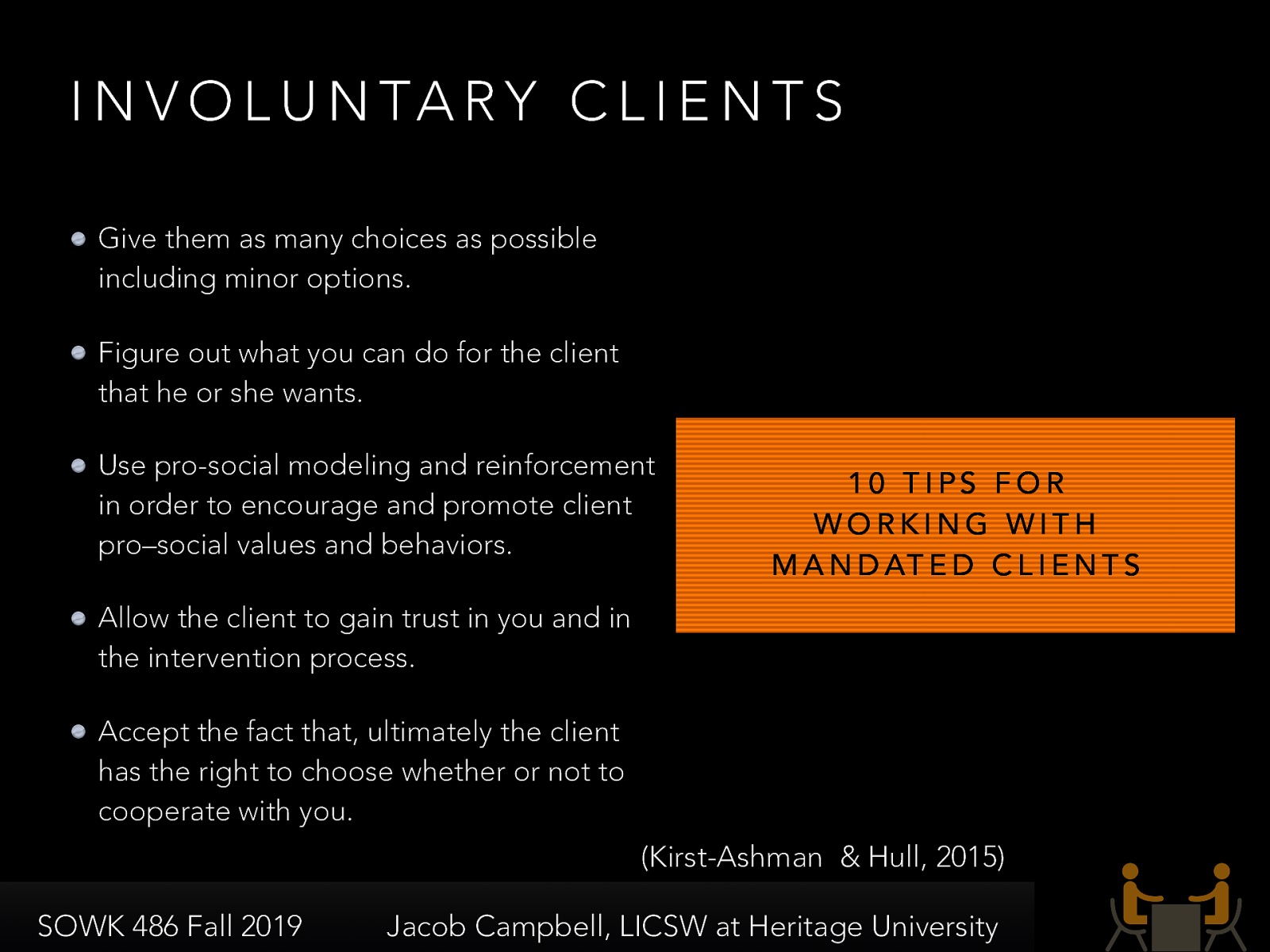
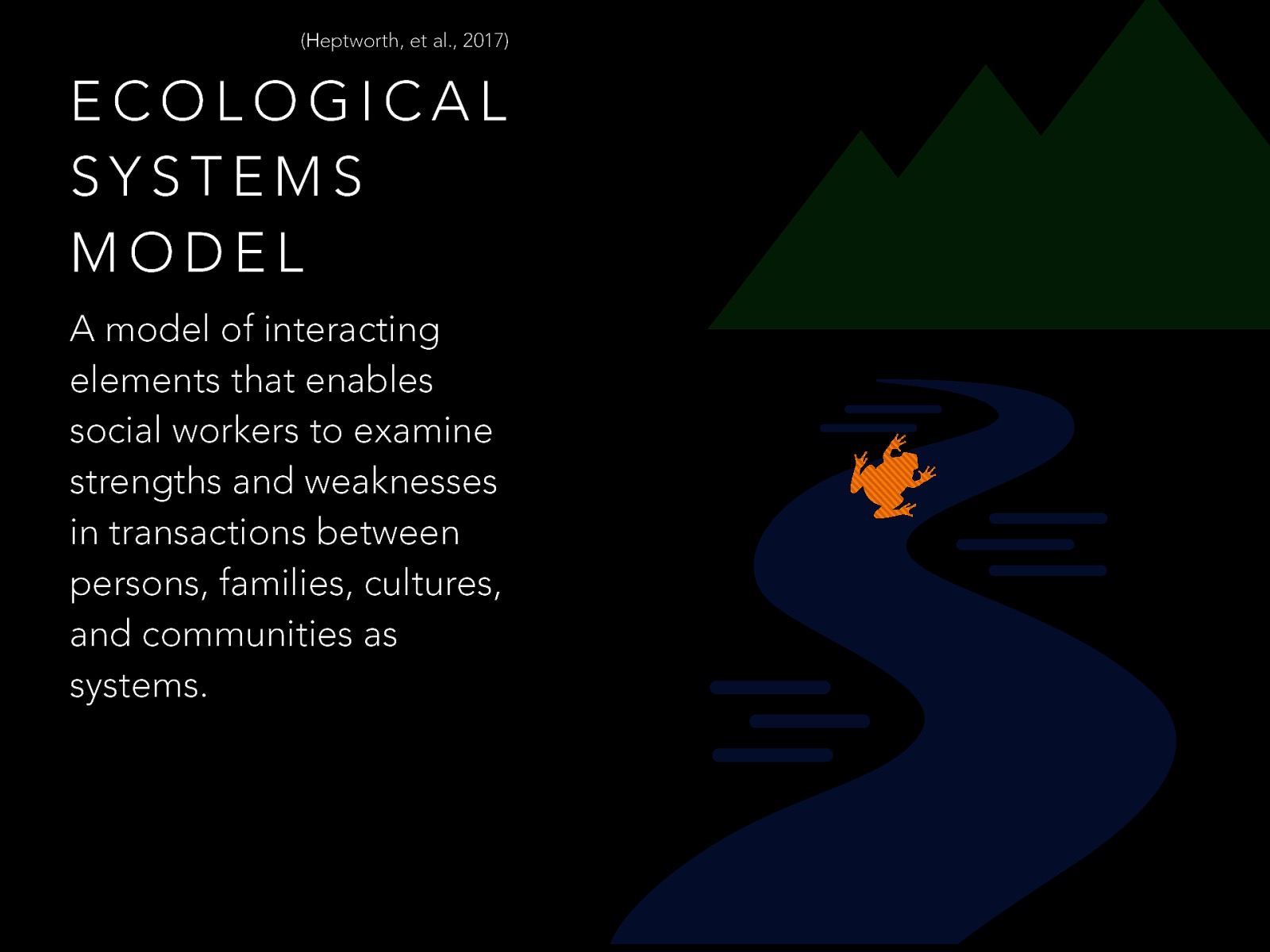
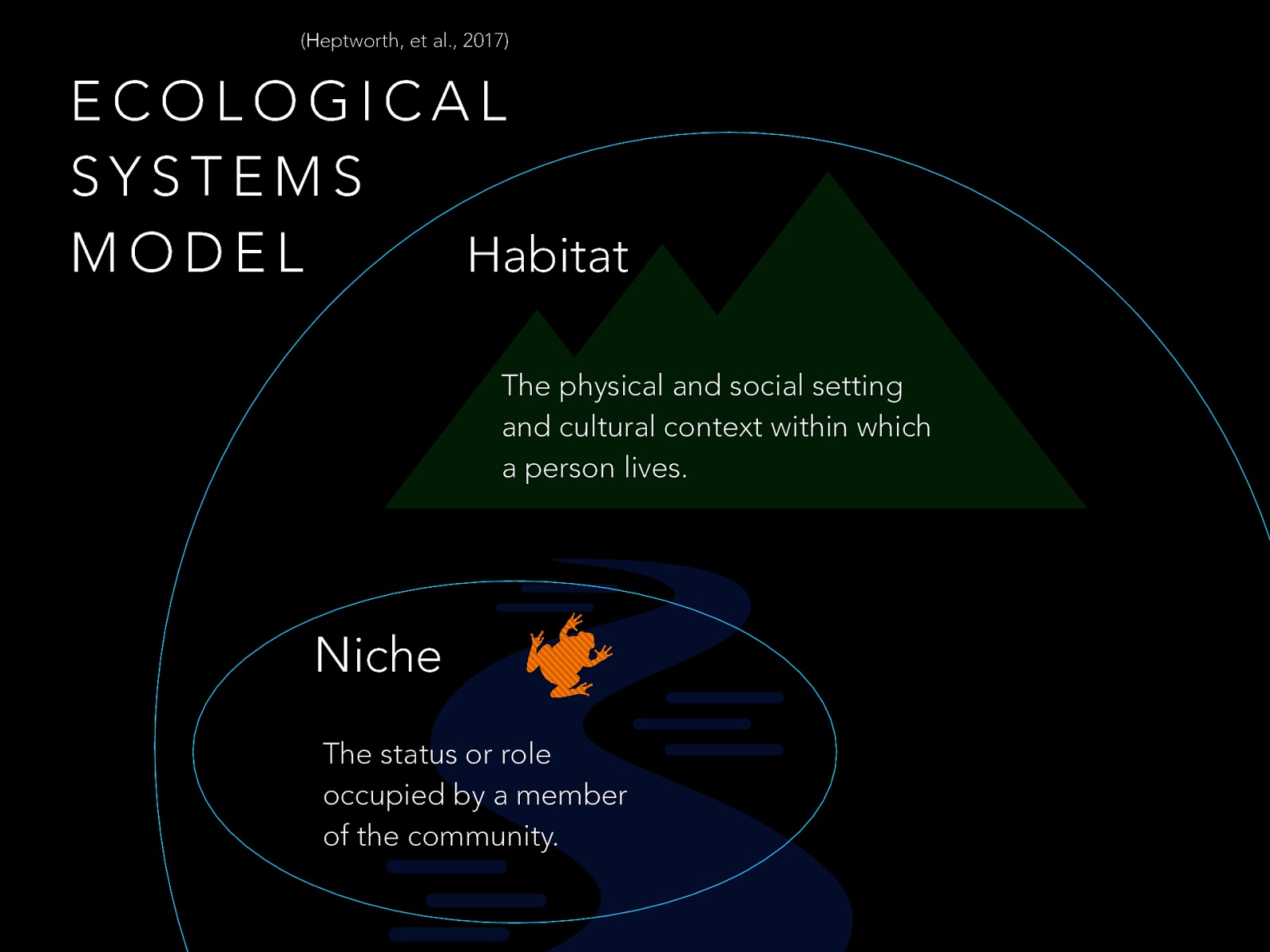
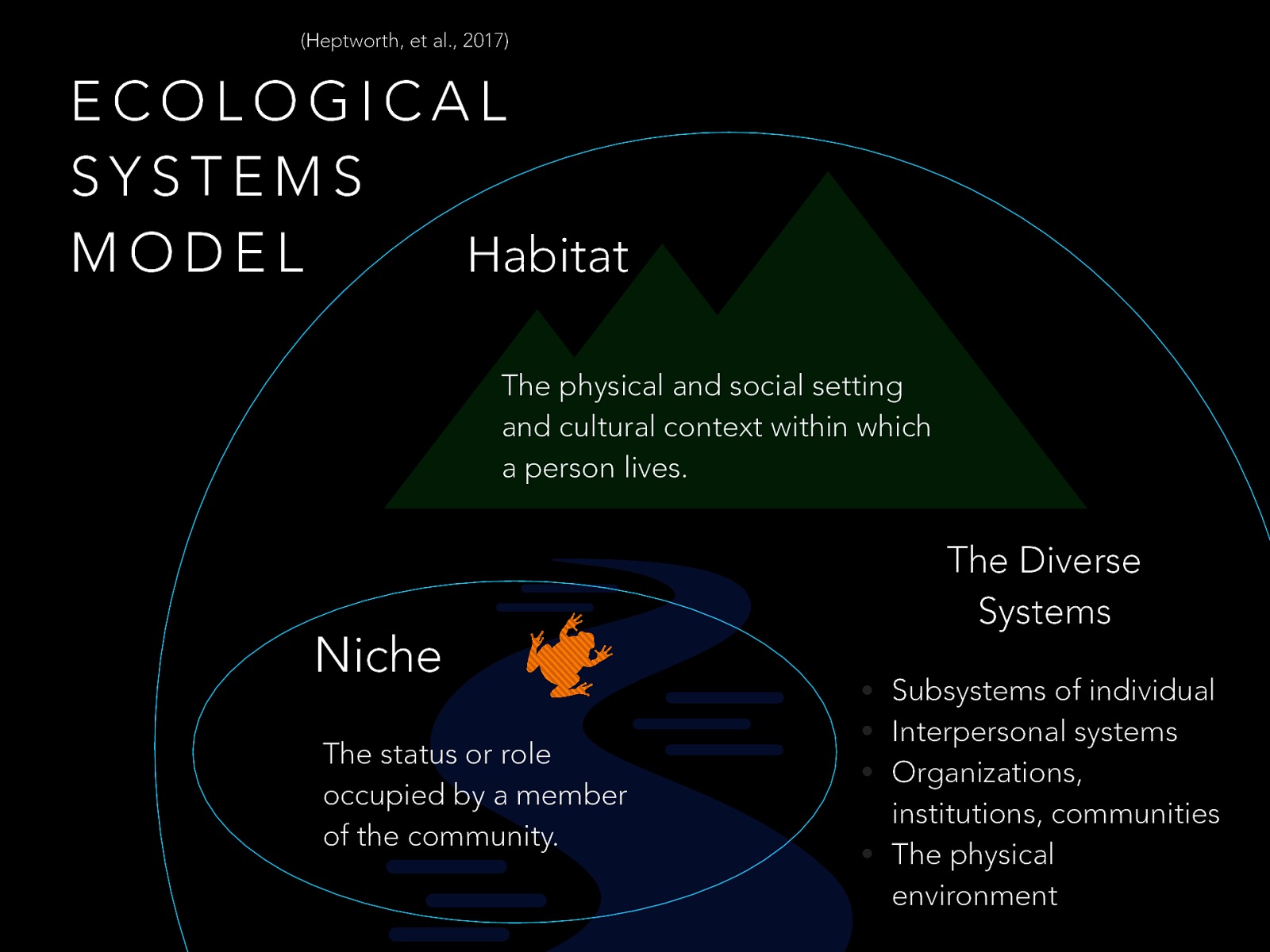
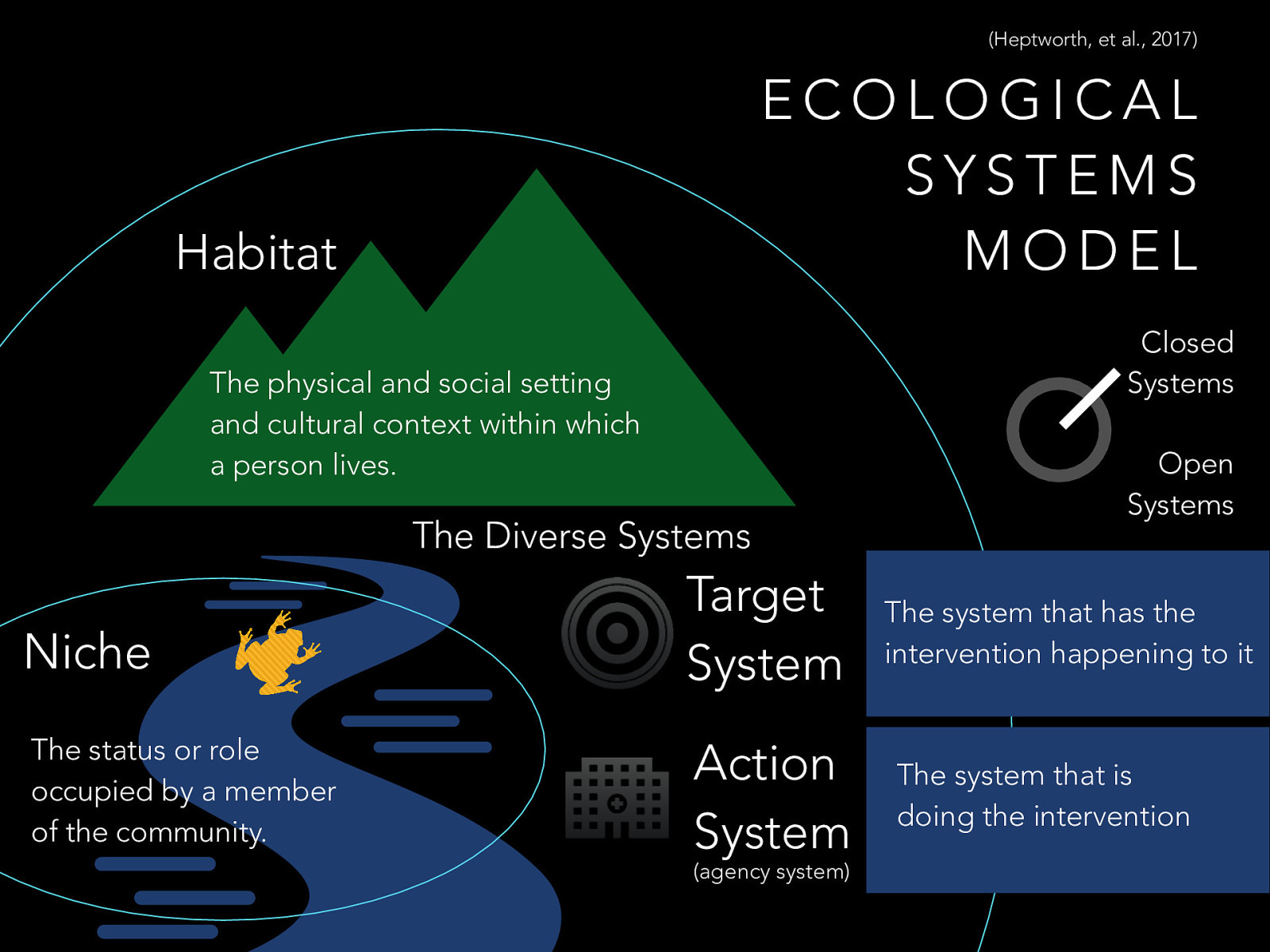
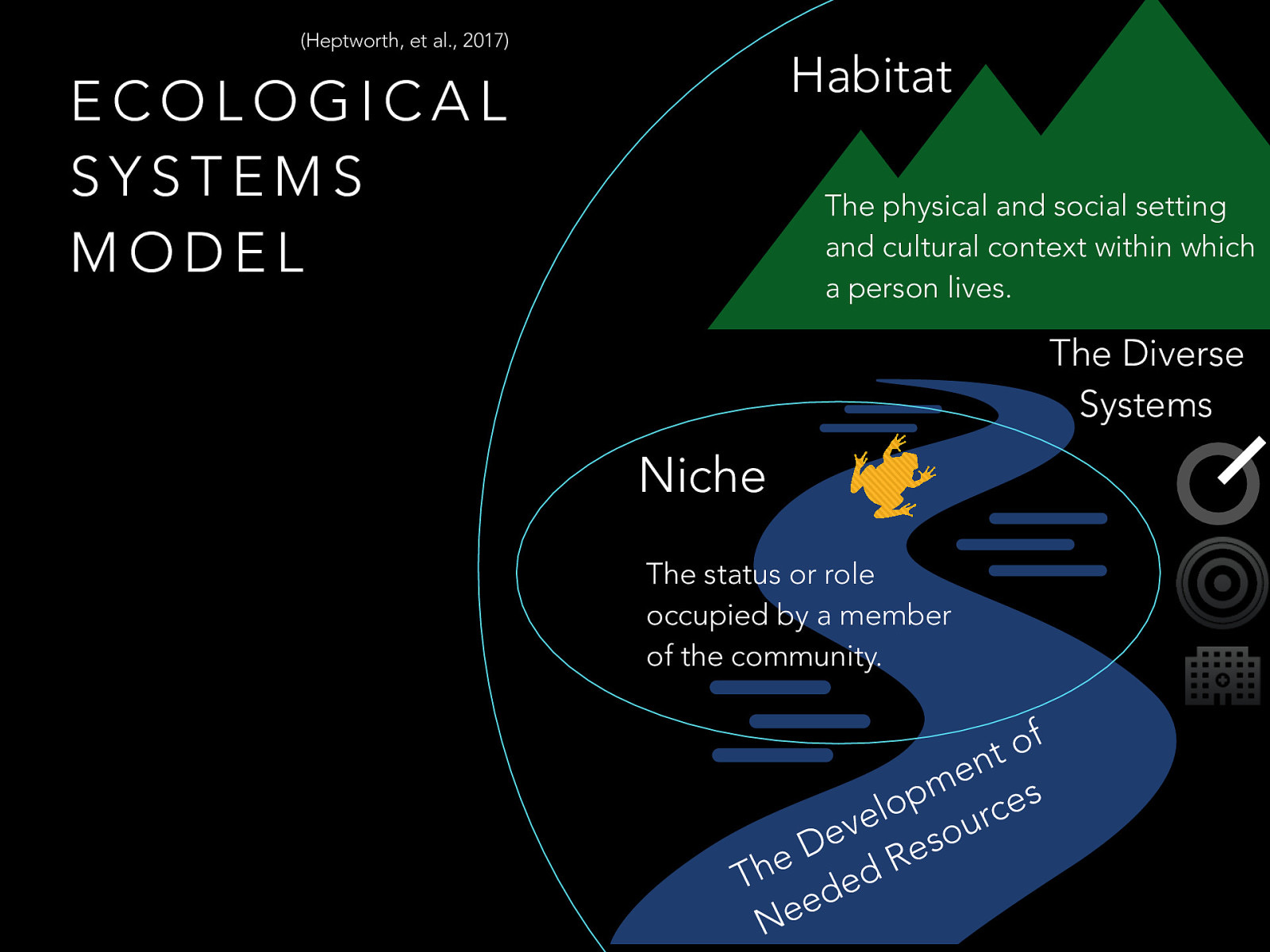
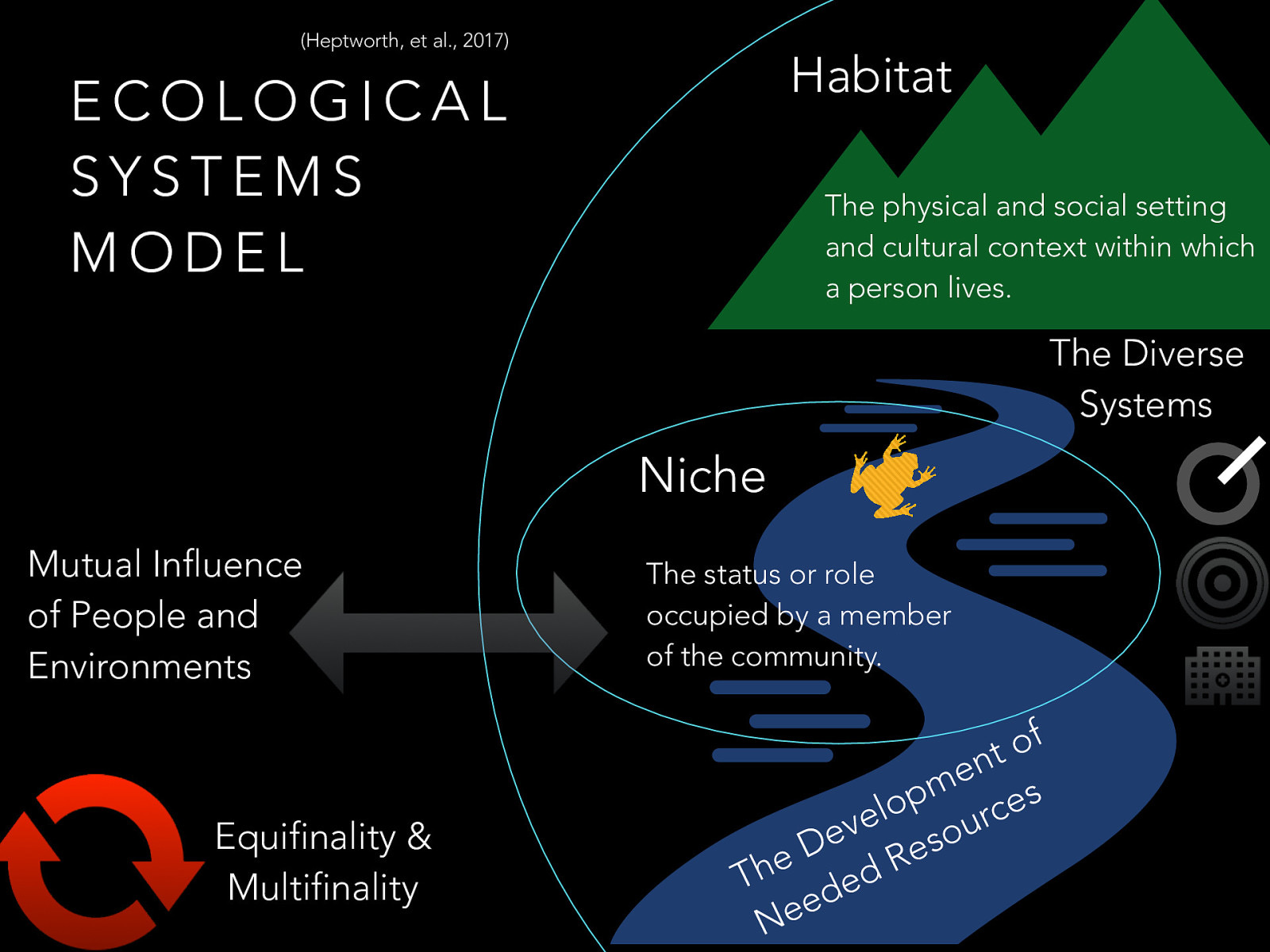
![Social work is a extremely diverse field. One of the benefits of the generalist methods for social work is that we can practice in so many different fields of practice. While the specific job titles might not be social worker for each one of these professions, these are all areas that we practice in. [Whole Class Activity - Discussion] discuss each of the fields of practice, with potential examples of roles social workers might take: Most of the problems that social workers face are complex and could fall in more than one field of practice and it is important to know a wide range of services. Work with Immigrants Housing or Financial Services Hospital and Health Services Mental Health Services Disability Services Chemical and Substance Abuse Services Child, Youth, and Family Services Child Welfare School Social Work Working with Aging Clients [Small Group Activity - Discussion] What areas of practice do you think of when you think of social work? -> Previous other categories Mental health: case management, therapy Occupational social work EAP Treatment Organizational change Social services Rural social work-addresses needs of those living in rural areas were there is limited resources. Police social work-work within police, courthouse, and jail settings to provide services to crime victims. Forensic social work-dealing with the law, educating lawyers, and serving as expert witnesses. Medical social work-work in hospital settings, and clinics, discharge planning or advocating for patients.](https://presentations.jacobrcampbell.com/wplYsz/deck-3514-large-22.jpeg)
